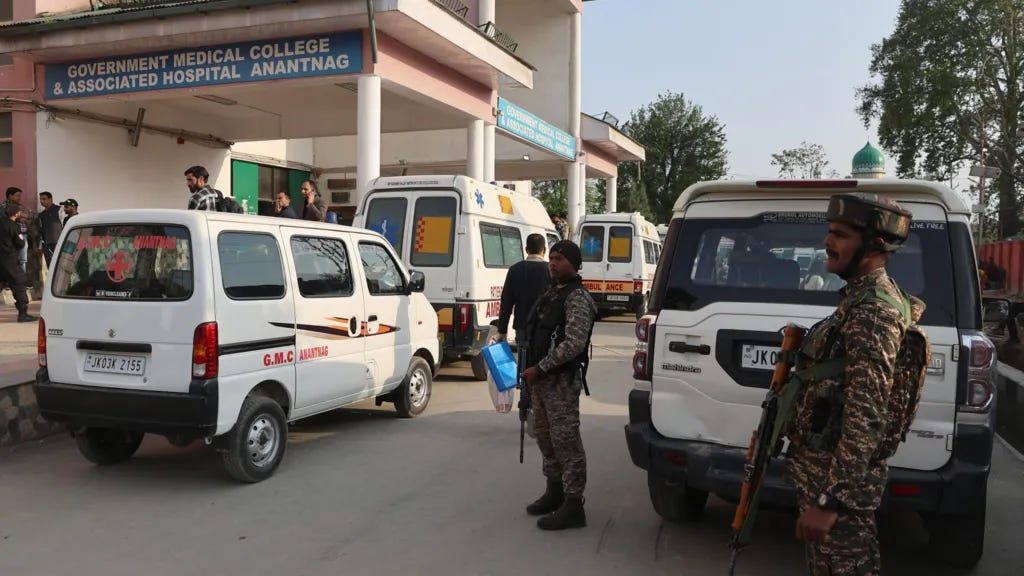
Brief: In one of the deadliest attacks in Kashmir since the 2019 Pulwama strike, terrorists killed at least 26 civilians—mostly tourists—in Pahalgam on April 22, 2025. The assault, which targeted visitors in the picturesque meadow known as the “mini Switzerland,” has drawn international condemnation and prompted Prime Minister Narendra Modi to cut short his Saudi Arabia visit. The attack marks a significant escalation in violence in a region that had been experiencing relative calm and increased tourism in recent years.
From BBC:
At least two dozen people have been killed after gunmen opened fire on a group of domestic tourists visiting a popular beauty spot in Indian-administered Kashmir, authorities have told the BBC.
The attack took place in Pahalgam, a picturesque town in the Himalayas often described as the "Switzerland of India".
The region's chief minister, Omar Abdullah, said the attack was "much larger than anything we've seen directed at civilians in recent years". Reports suggest that there are a large number of wounded, with some in critical condition.
US President Donald Trump, Russian President Vladimir Putin and EU chief Ursula Von der Leyen were among world leaders who condemned the attacks.
"Deeply disturbing news out of Kashmir. The United States stands strong with India against Terrorism," Trump said in a post on Truth Social.
Von der Leyen called the Kashmir deaths a "vile terrorist attack", while Putin expressed "sincere condolences" for the consequences of a "brutal crime".
India's Prime Minister Narendra Modi - who cut short his trip to Saudi Arabia in the wake of the attack - said the perpetrators would "be brought to justice".
"Our resolve to fight terrorism is unshakeable and it will get even stronger," Modi wrote in a statement on X.
Context and analysis
According to an article published in The Lowy Institute’s the interpreter, here are some possible explanations for the timing of the planned attack:
The timing, choice of target, and execution of the attack suggest several strategic objectives by its planners. First, the attack appears designed to embarrass the Indian government at a time when Delhi’s global profile is particularly firm. Moreover, the assault occurred during JD Vance’s visit to India, and just as the tourist and trekking season was gaining momentum.
Second, the perpetrators likely aim to reverse economic and social gains that followed Delhi’s 2019 decision to fully integrate Kashmir with the Indian state by revoking the region's autonomous status. By targeting tourists, the attackers strike directly at Kashmir's recovering tourism industry, which had been a sign of normalization in the region.
Third, the attack seeks to reignite tensions just as Kashmir and India had begun to establish a new regional and international narrative about the area. The deliberate targeting of tourists and apparent religious profiling of victims suggests an attempt to trigger communal tensions and destabilise the region. It also creates a feeling of panic and worry within the minds of international tourists.



